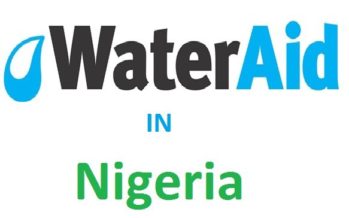WaterAid Advocates More Investment In WASH Sector To Boost Economic Recovery
Latest Headlines, News, World News Monday, July 12th, 2021
(AFRICAN EXAMINER) – A frontline international aid agency, WaterAid has called on governments, donors and businesses around the world to invest more in Water, Sanitation and Hygiene (WASH) to boost economic recovery from the impact of COVID-19 pandemic.
WaterAid is currently working in 28 countries to change the lives of the poorest and most marginalised people by working to make clean water, decent toilets and good hygiene normal for everyone, everywhere within a generation.
The non-for-profit organization specifically urged government, donors and businesses to make WASH investments central to fiscal stimulus packages in developing countries in order to strengthen economic recovery and support future pandemic preparedness.
In its recent report entitled, “Mission Critical: Invest in Water, Sanitation ad Hygiene for a Healthy and Green Economic”, WaterAid noted that the economies of developing country would be boosted by trillions of dollars over the next two decades if clean water, toilets and hygiene were brought to everyone.
The report comes after the United Kingdom (UK) Government faced wide criticism for revealing plans to slash aid spending on life-saving clean water, hygiene and sanitation programmes in developing countries by 80 percent earlier this year.
Moreover, it is coming at a time the G20 finance ministers converged to brainstorm on the way forward and as many developing countries struggle to contain devastating waves of COVID-19 that risk overwhelming already-fragile health services and with weak economies already severely hit by lockdowns and travel restrictions.
The report also indicated that reaching the levels of access defined by the UN’s Sustainable Development Goals (SDGs) could unlock huge sums, adding that ensuring everyone has a toilet where waste is safely managed can yield US$86 billion per year in greater productivity and reduced health costs amongst other benefits.
It further stated that by ensuring everyone has somewhere to wash their hands with soap and water can yield US$45 billion per year, while ensuring that everyone has a tap at home can yield US$37 billion per year.
“Protecting water and sanitation infrastructure from worsening flooding is one of the best ways we can protect the world’s most vulnerable people from the impacts of climate change – for every US Dollar spent on strategic flood resilience upgrades, US$62 in flood restoration costs can be avoided, as well as preventing life-threatening contamination of drinking water sources.
“The provision of even just a community water pump or well can give women and girls the equivalent of 77 million working days per year that they currently spend collecting water; whilst upgrading to a tap in every house would free-up 122 million working days that are annually stolen from them. The impact on the lives, prospects and freedom of women and girls, as well as a country’s economic success, would be transformative”, the report added.
Achieving the UN targets on sanitation, according to the report, could prevent up to six billion cases of diarrhoea and 12 billion cases of parasitic worms between 2021 and 2040.
It also posited that universal access to handwashing can reduce cumulative infections in a respiratory disease epidemic even if no other actions are taken, saving days that COVID-19 shows can be vital for response and containment efforts to limit the spread of infections.
Senior Economist at Vivid Economics, Caroline Vexler, who led analysis that fed into the report, said: “Our global benefit-cost analysis demonstrates that investing in WASH is a triple win: it can unlock billions in economic opportunities and health savings at relatively low cost, it can address key objectives of stimulus spending post-COVID and can build resilience to increasing global risks”.
Country Director of WaterAid Nigeria, Evelyn Mere said investment in water, sanitation and hygiene is mission-critical not only to ending the pandemic and preventing the next but to bouncing back economically by unlocking trillions of dollars of value for the global economy.
“Water and sanitation have been side-lined for far too long, their value overlooked, trapping millions in poverty. Our research shows that it’s an extremely cost-effective investment. Ensuring everyone everywhere has access to even basic water, hygiene and toilets would bring returns of up to 21 times the cost.
“There can be no going back to the pre-pandemic business-as-usual”, she warned.
She noted that in its previous report entitled, “Equal to the Task: Financing for a State of Emergency in Water Supply, Sanitation, and Hygiene”, WaterAid analysed the financing challenges plaguing Nigeria’s WASH sector and based on research and analysis, estimated the total cost of achieving SDG 6 in Nigeria to be US$2.1 billion a year in capital, operations, and maintenance. She further observed that with the current public spending, from both government and donors, at only $393 million, there is a massive annual financing gap to address.
“The cost of not investing in the water, sanitation, and hygiene sector far exceeds the cost of investing. It is impossible to quantify the impacts of poor water supply and sanitation on livelihoods, health, child development, productivity, education, gender, and security outcomes.
“With the COVID-19 pandemic still raging across the world, the need for quality water, sanitation, and hygiene services has never been more important”, she stressed.
Related Posts
Short URL: https://www.africanexaminer.com/?p=65328




















